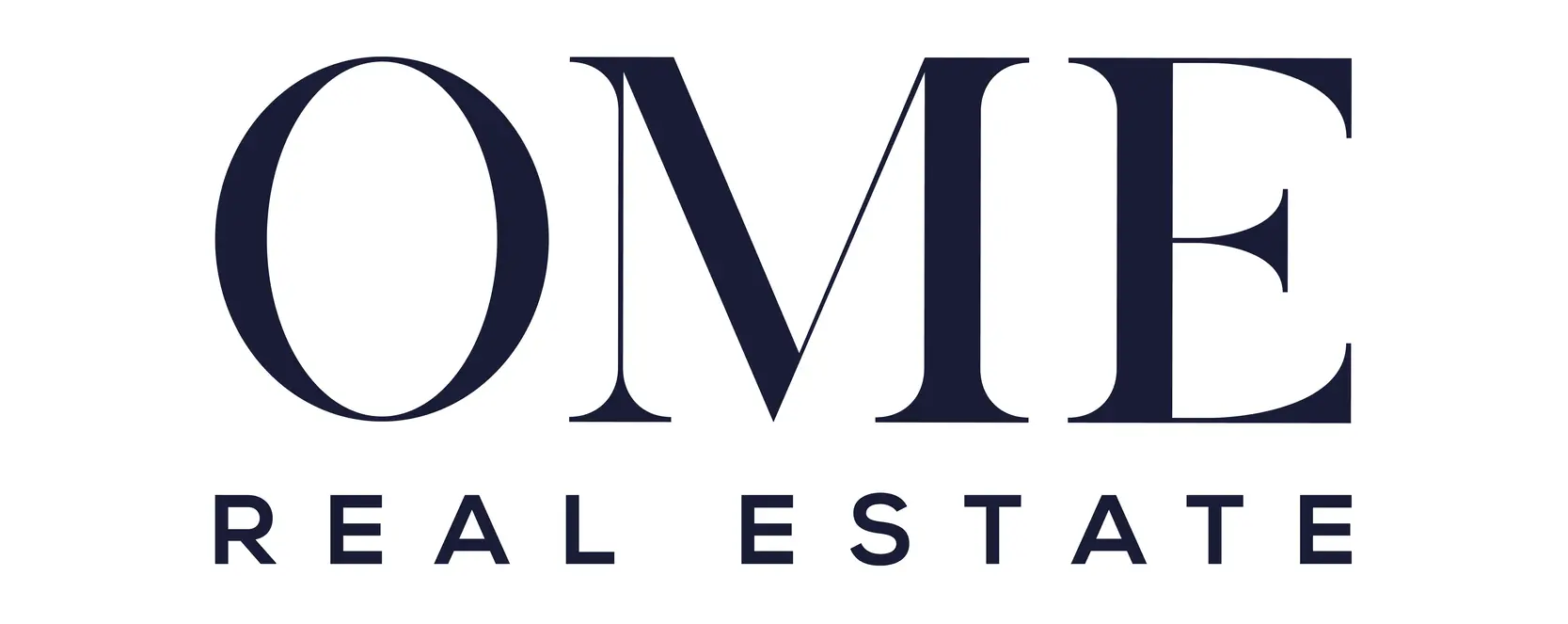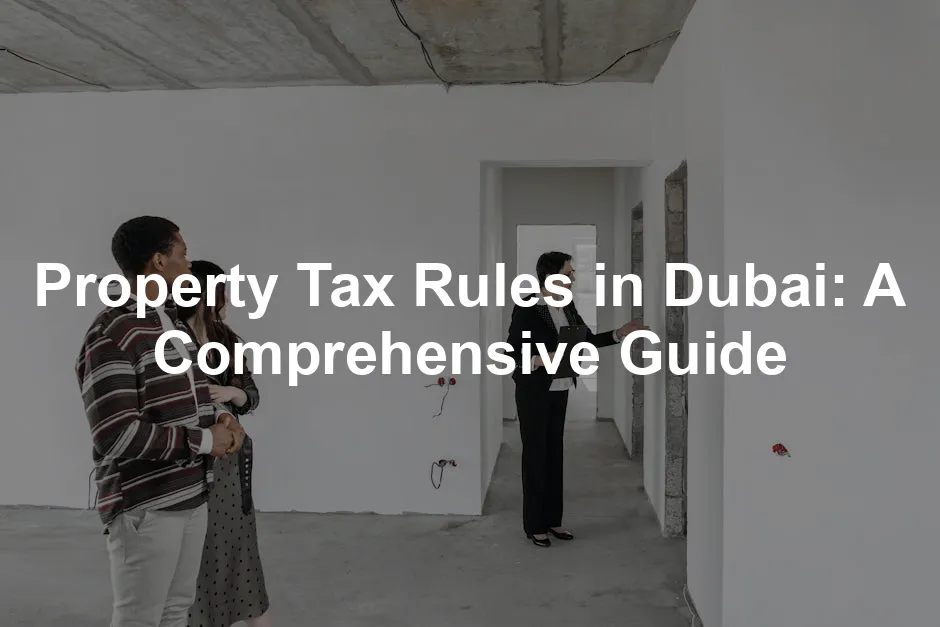Introduction
Are you considering investing in real estate in Dubai? If so, you’ll be pleased to know about the city’s attractive tax environment. Unlike many global cities, Dubai offers a unique taxation structure that minimizes the financial burden on property owners. This article aims to clarify property tax rules and associated fees, helping potential investors make informed decisions.
Summary and Overview
Dubai’s tax landscape is one of its biggest draws for both local and foreign investors. The emirate stands out for its absence of traditional property taxes, which significantly benefits homeowners. Instead of an annual tax, property owners face a few specific fees and charges. This guide provides an overview of the main fees associated with property ownership in Dubai, ensuring you understand your financial commitments.
Understanding the Tax Structure in Dubai
No Annual Property Tax
One of the most appealing aspects of Dubai’s real estate market is the lack of an annual property tax. Homeowners can rejoice as they won’t face this ongoing financial obligation. This absence allows property investors to retain more of their earnings and invest in additional properties. Recent statistics indicate a surge in property ownership, with many investors taking advantage of this favorable environment. In fact, Dubai’s real estate market has seen a steady increase in foreign investment, making it a prime location for property acquisition.
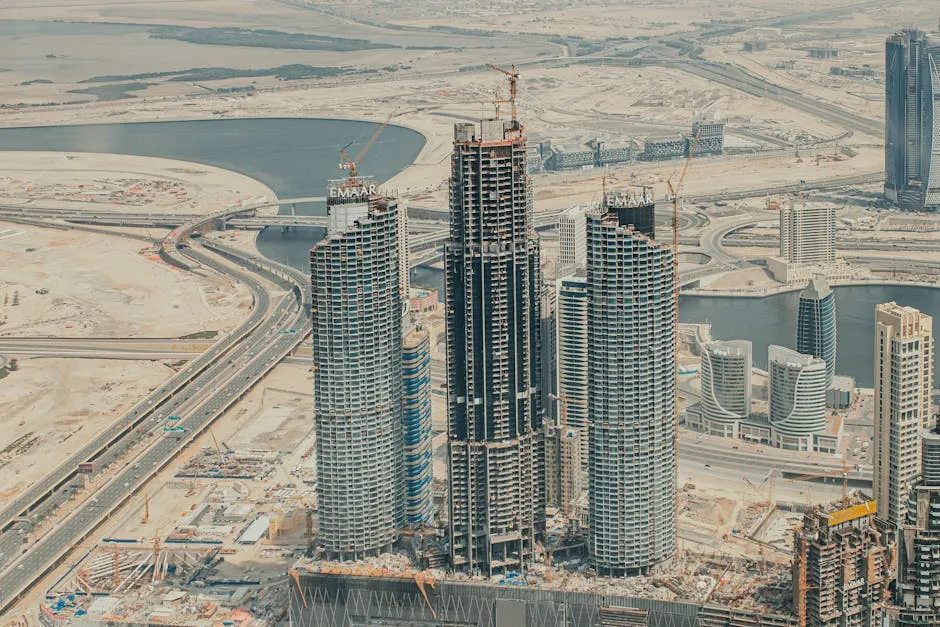
Transfer and Registration Fees
In Dubai, a 4% property transfer fee is charged on the sale price of real estate. This fee is usually shared between the buyer and seller. However, it’s common for the buyer to cover the entire amount. This one-time fee makes property transactions straightforward and cost-effective compared to many global markets.
Registration fees are also applicable, varying based on the property’s value. For properties valued up to AED 500,000, the fee is AED 2,000. For those over AED 500,000, the fee is AED 4,000. This tiered structure helps keep costs manageable for buyers.
When you compare these fees to cities like New York or London, Dubai stands out. In New York, annual property taxes can reach up to 2% of the property value. Conversely, in Dubai, you only pay transfer and registration fees, making it a more attractive option for property investors globally.

Housing Fee (Municipality Tax)
Landlords in Dubai must pay a monthly housing fee, often referred to as municipality tax. This fee is typically calculated at 5% of the annual rental value. The responsibility for this fee falls on the landlord, who can opt to pass it on to tenants in their rental agreements.
As for rental prices, they have been on the rise, reflecting the strong demand in the market. For instance, average rents in popular neighborhoods can range from AED 70,000 to AED 150,000 annually. This increase in rents subsequently impacts the housing fee, making it crucial for landlords to factor in these costs when setting rental rates.
For a deeper understanding of rental yields in Dubai neighborhoods, check out this comprehensive guide.
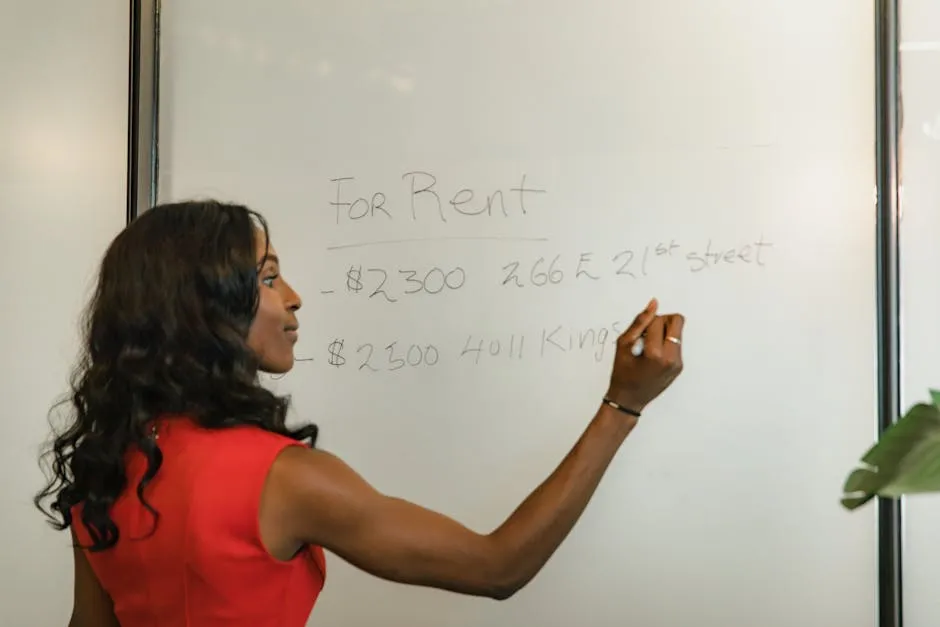
Comparative Analysis of Property Taxes
Global Comparison
When comparing property tax structures, Dubai shines against major cities like New York, London, and Sydney. In these cities, property owners face hefty annual property taxes. For example, New York can impose taxes upwards of 1.5% of the property’s value, while London’s taxes can also be substantial.
What makes Dubai unique is its absence of capital gains tax. Investors can sell properties and enjoy profits without additional tax burdens. This is a significant advantage, especially when you consider that capital gains taxes can reach up to 28% in the UK.
According to recent data, the average property tax burden in cities like Sydney can exceed 2% annually, contrasting sharply with Dubai’s minimal fees. This favorable tax environment makes Dubai an appealing destination for real estate investment.
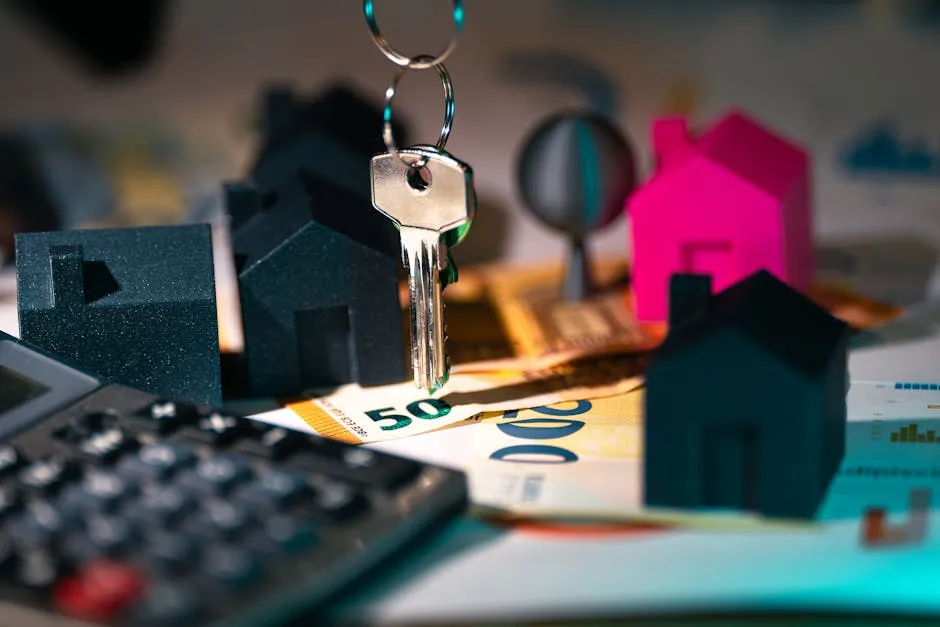
Investment Appeal
Why is Dubai a magnet for real estate investors? The answer lies in several compelling factors. First, high rental yields attract investors, with some neighborhoods boasting returns as high as 8%. Areas like Dubai Marina and Downtown Dubai lead the pack, offering lucrative opportunities.
Additionally, the overall tax burden in Dubai is remarkably low. Unlike many global cities, Dubai does not impose an annual property tax. This absence of traditional taxes enhances the profitability of property investments.
According to recent reports, Dubai’s rental yields consistently outperform those in cities like New York and London. Investors in Dubai can benefit significantly from this favorable environment, making it an ideal location for real estate investment.

Discover the latest trends in the Dubai real estate market for 2024 by exploring this detailed article.
Additional Taxes and Fees Associated with Property Transactions
VAT and Other Applicable Taxes
When it comes to VAT, Dubai has a clear stance. Residential properties are exempt from VAT, which means you won’t face extra costs when buying a home. However, commercial properties do incur a 5% VAT. If your business generates rental income exceeding AED 375,000 annually, registration for VAT becomes necessary.
In addition to VAT, some additional municipal taxes may apply. These are usually manageable and designed to support local infrastructure. Understanding these aspects can help you navigate property transactions more smoothly.
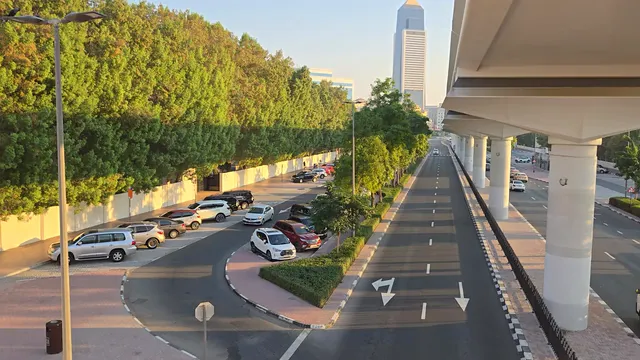
Costs Incurred by Property Owners
Owning property in Dubai comes with its share of costs. Here’s a breakdown of the main fees you might encounter:
- Mortgage Fees: Typically, this involves a registration fee of about 0.25% of the mortgage amount. Additional processing and valuation costs may also apply.
- Agency Fees: If you hire a real estate agent, expect to pay around 2% of the property’s sale price. This fee can streamline the buying process significantly.
- Utility Charges: As a homeowner, you’ll be responsible for utility bills, including water and electricity, provided by the Dubai Electricity and Water Authority (DEWA).
- NOC Fees: When selling a property, obtaining a No Objection Certificate (NOC) from the developer is essential. This can cost between AED 1,000 and AED 5,000, depending on the property type.
For instance, consider a property worth AED 3 million. With a mortgage, your fees could total around AED 189,715, including transfer fees and agency costs. Understanding these expenses is crucial for effective financial planning.
Navigating these costs might seem overwhelming, but having a clear breakdown will help you stay ahead in Dubai’s vibrant real estate market.

The Role of the Dubai Land Department (DLD)
Registration and Compliance
When you buy property in Dubai, registering with the Dubai Land Department (DLD) is essential. This process ensures your ownership is legally recognized. To start, you need to submit specific documents, including the sale agreement and identification.
One key document is the No Objection Certificate (NOC). This certificate confirms that no outstanding debts or issues are tied to the property. Without the NOC, you cannot proceed with the registration. It’s a crucial step to ensure a smooth transaction.
The DLD plays a vital role in maintaining compliance with local laws. They set regulations that govern property transactions, ensuring that all parties adhere to established standards. This oversight helps protect both buyers and sellers, fostering a secure real estate environment.

Impact on Investors
The policies of the DLD significantly support a transparent real estate market. They provide a framework that ensures fair practices, making it easier for investors to make informed decisions. With the DLD’s oversight, potential buyers can trust the integrity of property listings.
Recently, the DLD has introduced initiatives aimed at making property transactions more efficient. For instance, they have streamlined the registration process, reducing wait times. Such changes benefit investors by simplifying their experience in the market.
Investors can also take advantage of the DLD’s resources. They offer guidance on navigating the complex landscape of property laws and regulations. This support can be invaluable for both new and seasoned investors looking to capitalize on Dubai’s booming real estate market.

Conclusion
In summary, understanding property tax rules in Dubai is critical for any potential investor. The absence of annual property taxes, along with a robust regulatory framework provided by the DLD, enhances the appeal of Dubai’s real estate market. These favorable conditions make it an attractive option for property investment.
If you’re considering purchasing property in Dubai, seeking professional advice is a smart move. A knowledgeable real estate agent can help you navigate the intricacies of property transactions, ensuring you make well-informed decisions. Take the first step toward your investment journey in Dubai today!
FAQs
Is there any property tax when buying property in Dubai?
In Dubai, you won’t encounter traditional property taxes. Instead, there’s a 4% property transfer fee based on the sale price. This fee is typically paid by the buyer, though sometimes sellers contribute. This unique approach makes buying property in Dubai financially appealing compared to many global cities.
What are the typical fees associated with purchasing property in Dubai?
When buying property, several fees come into play. First, the transfer fee is 4% of the property’s purchase price. Then, registration fees apply: AED 2,000 for properties up to AED 500,000 and AED 4,000 for those over this amount. Additionally, expect to pay agency fees, usually around 2% of the sale price. These costs are essential to factor into your budget.
Are there any taxes on rental income in Dubai?
Dubai stands out as it has no income tax on rental earnings. However, landlords must pay a rental tax, which is 5% of the annual rental value. This fee is typically collected through the tenant’s rent, making it easier for landlords to manage.
Do foreign investors face any additional taxes when buying property in Dubai?
Foreign investors in Dubai enjoy the same tax benefits as local buyers. There are no extra property taxes for non-residents. They simply need to pay the standard fees like the transfer and registration fees. This welcoming environment helps attract international investors.
How does Dubai’s property tax system compare to other major global cities?
Compared to cities like New York or London, Dubai’s property tax system is remarkably favorable. In New York, property taxes can exceed 1.5% of a property’s value annually, while in Dubai, buyers only pay the one-time transfer fee. This significant difference highlights Dubai’s appeal as a prime location for real estate investments.
Please let us know what you think about our content by leaving a comment down below!
Thank you for reading till here 🙂
All images from Pexels
